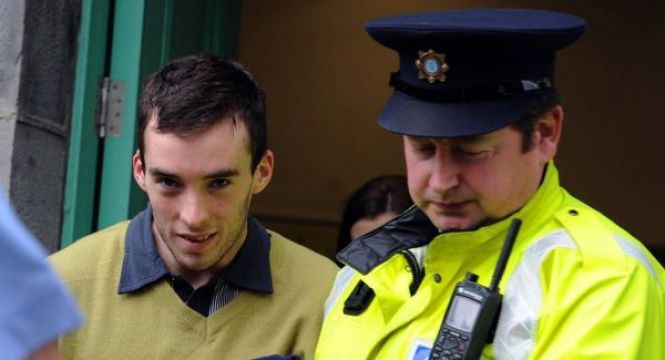A 29-year-old autistic man admits killing his mother "without any lawful justification" by inflicting five fatal blows to her head with a hatchet whilst she lay in her bed, a murder trial jury has heard.
It was during the opening of the trial of Patrick Dunne at the Central Criminal Court on Friday that a prosecuting barrister said that expert psychiatrists for both the prosecution and defence are in agreement that the accused was insane "as defined by law" at the time of his mother's death.
Patrick Gageby SC, defending Mr Dunne, made a number of admissions of fact to the court on Friday on behalf of his client. These included that the accused killed his mother Susan Dunne and had done so "without any lawful justification".
Mr Dunne from Ballingeragh, Lixnaw, Co Kerry has gone on trial at the Central Criminal Court on Friday, having pleaded not guilty to murdering his mother Susan Dunne (62) between November 26th and 27th 2013, both dates inclusive, at the same address.
Opening the case for the prosecution, Dominic McGinn SC said that this was "quite an unusual trial" as a lot of it will involve statements being read to the jury.
Outlining the facts of the case, Mr McGinn said Ms Dunne's body was found in her bedroom between 11am and 11.30am on the morning of November 27th. Ms Dunne, who was already dead by the time she was found, had sustained at least five blows to her head, he said.
Counsel told the jury that Ms Dunne's son, Patrick, was 19 years old at the time and had been diagnosed with autism at a relatively young age. The accused required additional care "on top of the usual parenting requirements", he added.
The prosecution barrister went on to tell the court that the Lixnaw and Listowel communities were used to the sight of Ms Dunne driving around in her car with her son Patrick in the back seat.
Detailing the evidence that will be heard, Mr McGinn said one of the regular things that Ms Dunne did was to collect her son's disability allowance from the post office. "She looked after his social welfare card, Patrick would withdraw the money and then Susan would give him €5 for himself," he explained.
What raised concern on November 27th, the lawyer said, was that Patrick arrived alone at the post office, withdrew the money himself and was seen to be driving around unaccompanied in his mother's car. "Because of that various neighbours were alerted and they went around to the Dunne house," he said.
There will be evidence, Mr McGinn said, that neighbours found the front door of the Dunne house unlocked, but one of the internal doors was locked.
The barrister further stated that one of the neighbours had opened a window and looked inside. The neighbour made a decision to force open the bedroom door, where he found Ms Dunne's body. The neighbour called the emergency services immediately and when the ambulance crew arrived they found Ms Dunne without a pulse and cold to touch.
Ms Dunne was formally pronounced dead at 11.51am that morning.
Outlining the circumstances of the deceased’s death, Mr McGinn said that State Pathologist Dr Margaret Bolster conducted a full post-mortem and confirmed that Ms Dunne had sustained six wounds to her head, five of them were a significant size and situated behind her right ear.
Dr Bolster found multiple fractures and fatal trauma to the deceased's brain underneath the wounds. "She certified that brain trauma was the cause of death and that the wounds were consistent when Ms Dunne was lying in bed in the position that she was found," he continued.
Mr McGinn said the evidence will be that a hatchet used for chopping wood was found in the kitchen. Dr Bolster found the wounds to Ms Dunne were consistent with having been inflicted by the hatchet.
Counsel also indicated to the jury that gardaí found the hatchet next to the fridge in the kitchen, that the blade was clean but there was some blood-staining on the rear of it, which matched the accused's DNA profile.
A DNA profiling was also conducted on the handle of the hatchet and the major profile matched the accused's DNA, he said.
The court heard further evidence will be that gardaí interviewed witnesses over the next few days, who had encountered Patrick that morning, to ascertain a pattern of what took place.
Mr McGinn said a man had encountered Patrick at 9.30am that day when the accused arrived at his home and began asking for his sister. The man's sister had worked at the accused's former school and Patrick had developed "an attachment" to her, he said.
The barrister said Patrick was also seen driving alone in his mother's car that morning by a local woman.

The accused, counsel said, was later seen on the street at 11am and told another man that he was in town with his mother who was shopping.
At 11.30am, the lawyer said, Patrick went to Listowel Community College, where he was attending once a week, had a cup of tea and spoke to members of staff.
By this stage, counsel said that Ms Dunne's body had been found and gardaí were alerted.
The trial resumes this afternoon before Ms Justice Mary Ellen Ring and a jury of five men and seven women. It is expected to last three days.







